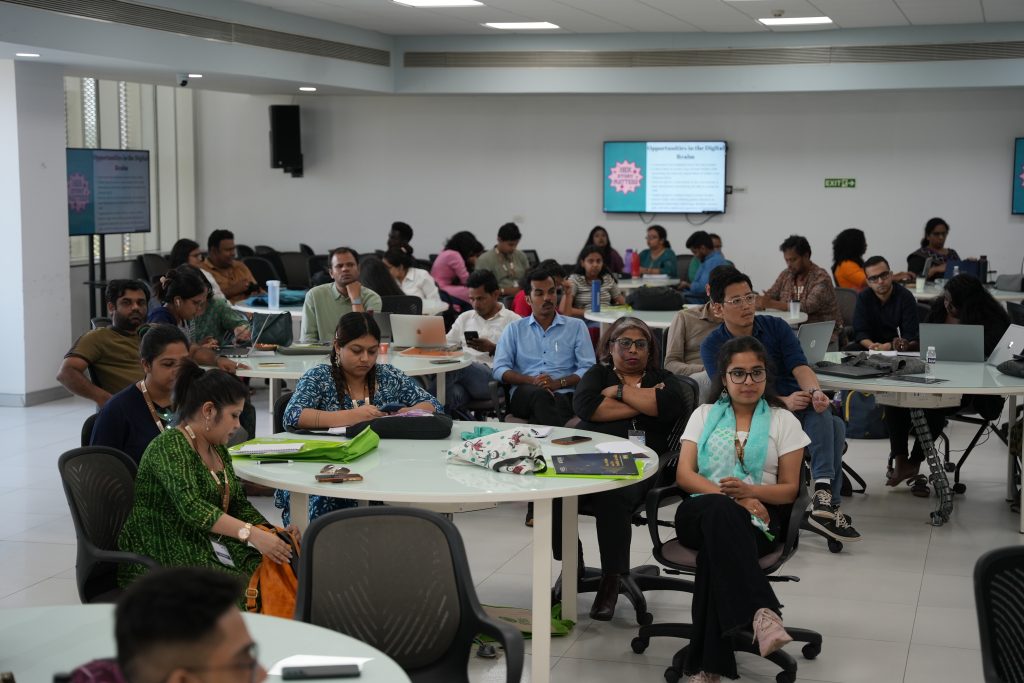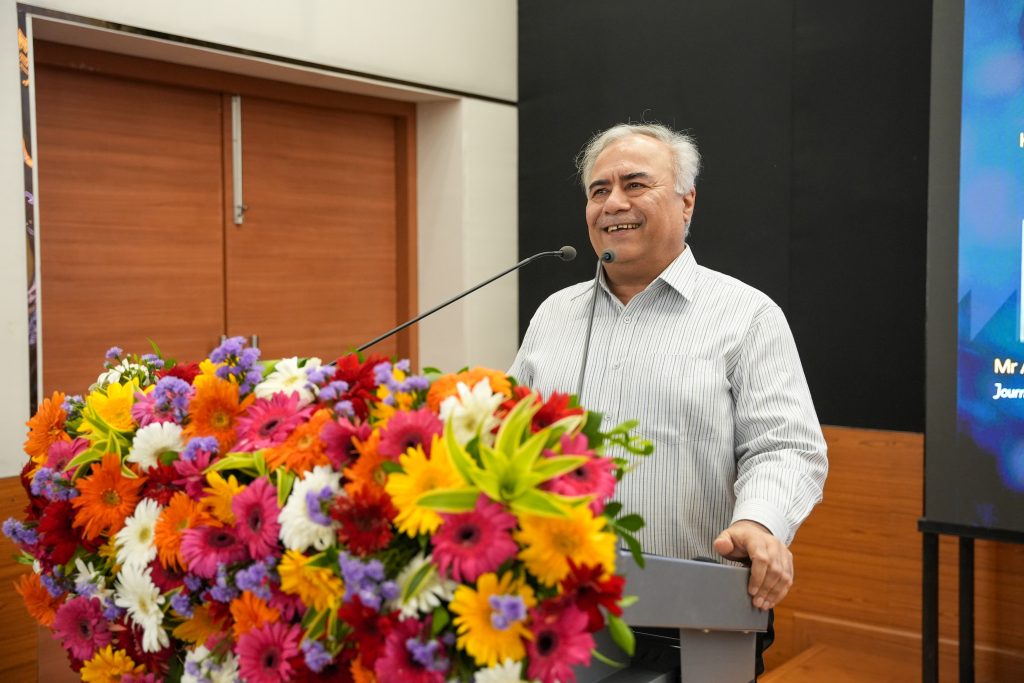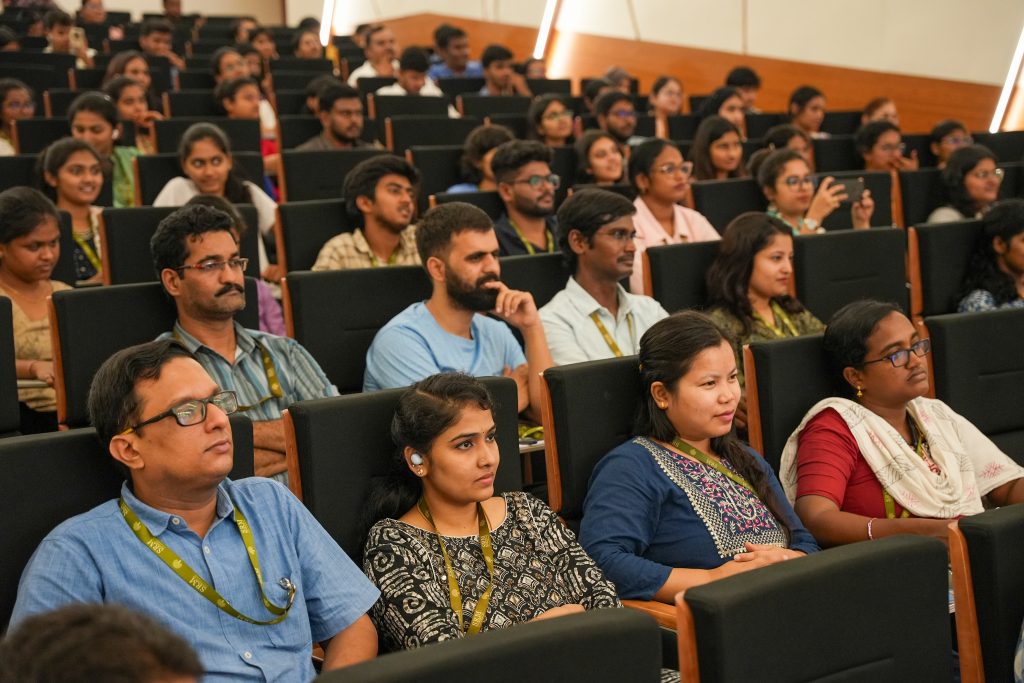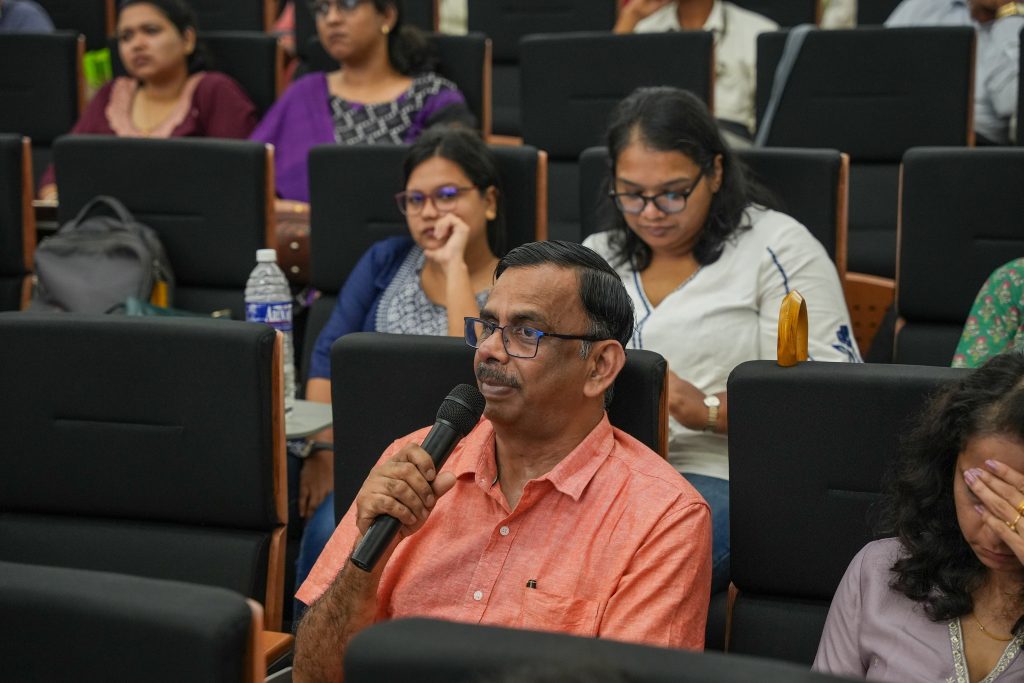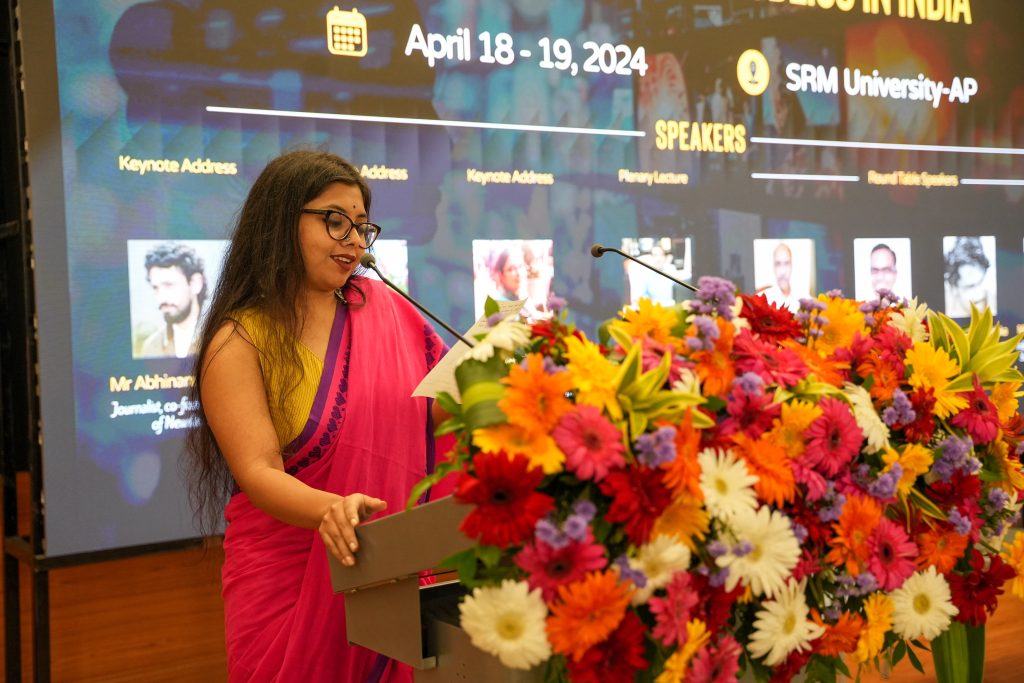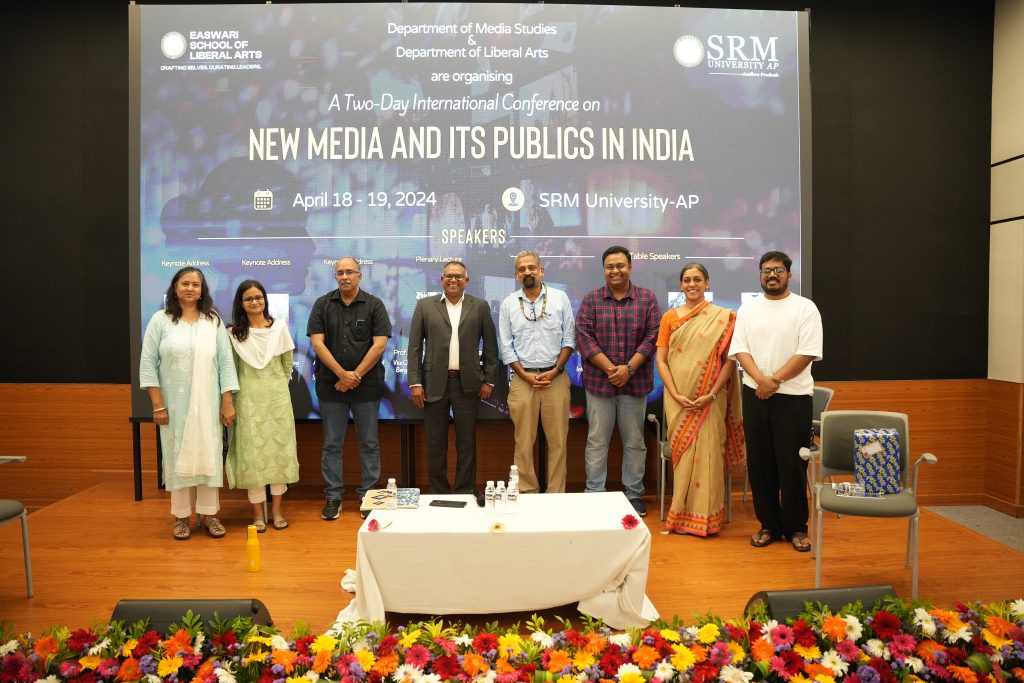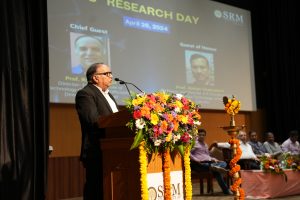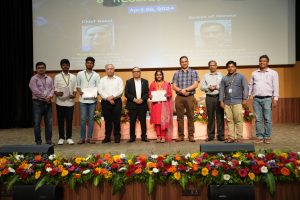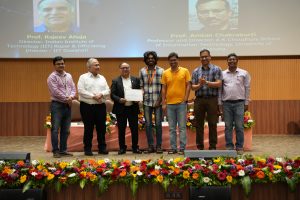All Management News
- Creating History: A Chase to Mt. Everest! April 29, 2024
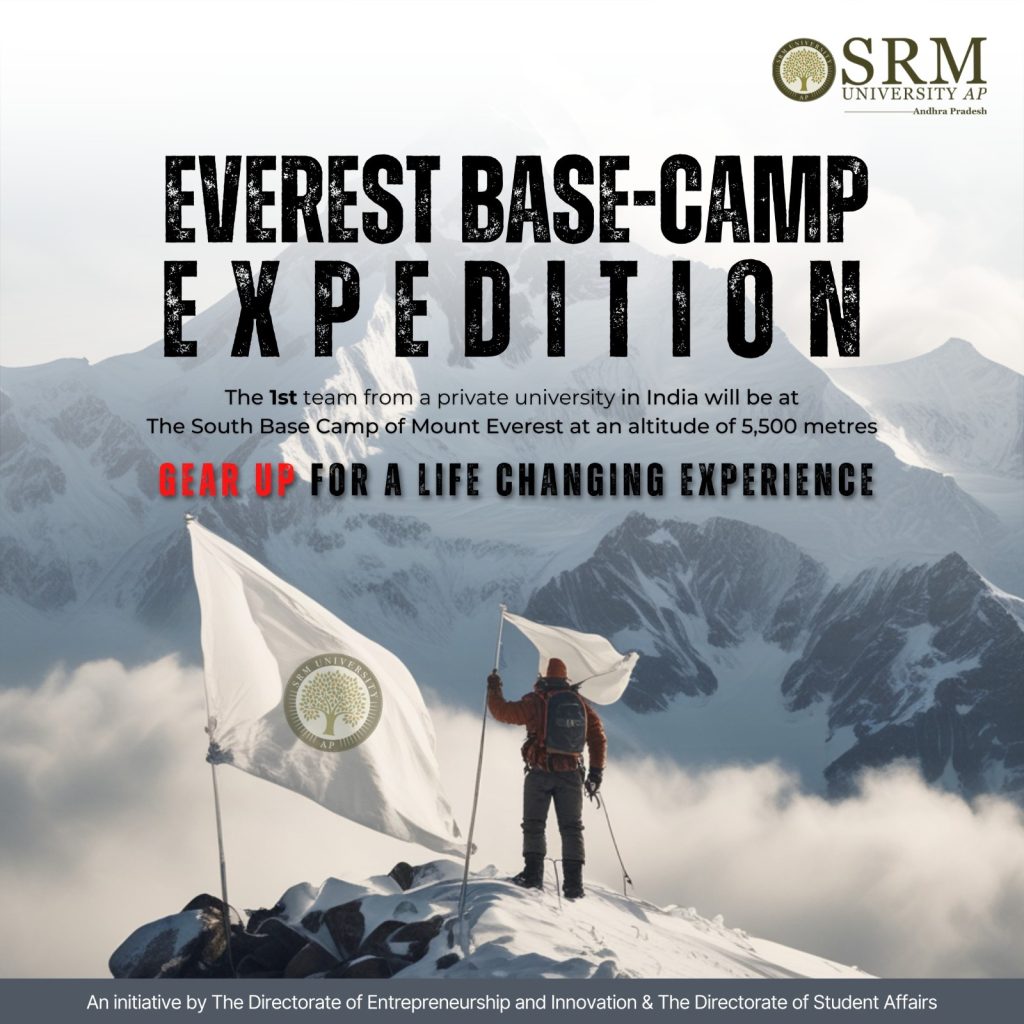
SRM University-AP is gearing up for the ultimate thrill-seeking escapade, which will have hearts racing and adrenaline pumping like never before! The Directorate of Entrepreneurship & Innovation and the Directorate of Student Affairs jointly organise the “Everest Base Camp Expedition”, the mother of all adventures – a daring conquest of the Earth’s highest mountain above sea level – Mount Everest!
The 15-day exhilarating journey will take flight with a maiden batch of 20 young adventurers selected through a rigorous physical and mental ability test on October 11, 2024 (tentative). 4 months of extensive training will commence in full swing, with the selected students pushing their limits and testing their endurance, moulding them into a complete voyager. Various training and practice trips have been scheduled to Arakku Valley to test their strength, Mangalagiri temple for elevation trekking training and much more.
This is a first-of-its-kind initiative by a university in India, presenting a unique opportunity for every enthusiastic explorer to witness the magnificence of the cold, icy peaks of the Himalayas. In addition to providing students with exemplary academic, research and entrepreneurial resources, SRM AP also emphasises the significance of 21st-century skills in nurturing them into socially aware and ethical citizens of tomorrow. This one-of-a-kind trip will ensure that students imbibe the value of belief and courage to instil purpose or a greater aim for anything that they might pursue in life, the importance of not losing faith during hard times and overcoming the obstacles that hinder your aim, the significance of camaraderie and teamwork, to develop essential leadership skills etc.
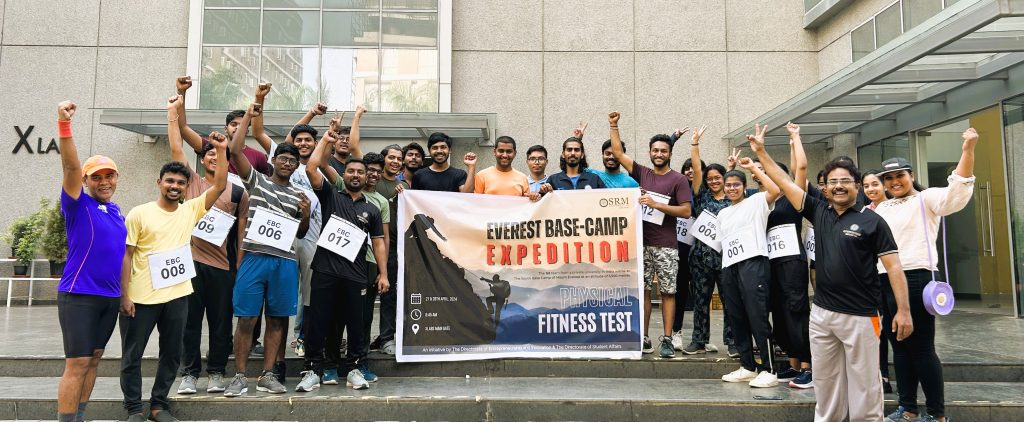
Students and their mentors have already begun their footsteps on a journey that will transform their lives! Embracing the thrill, embracing the adventure!
This journey will undoubtedly etch unforgettable memories into the fabric of their existence!
Continue reading → - Dr Pradyut and Students Revolutionise Disease Detection April 29, 2024

In the groundbreaking research paper titled “Innovative Web Application Revolutionizing Disease Detection: Empowering Users and Ensuring Accurate Diagnoses,” Dr Pradyut Sanki, Associate Professor at the Department of Electronics and Communication Engineering, along with doctoral scholars Mr P N S B S V Prasad, and Mr Syed Ali Hussain and BTech students Ms Pragya Gupta and Ms Swikriti Khadke introduce a cutting-edge web application that aims to revolutionise disease detection and empower users to understand their health conditions.Their research paper published in the Journal of Electronic Materials has an impact factor of 2.1.
Abstract:
This paper presents an innovative enhancement aimed at revolutionizing disease detection and providing users with a reliable source of information for accurate diagnoses of their symptoms. Our open-source initiative combines a user-friendly interface design with advanced machine learning models, establishing a new benchmark for accuracy and enabling integration with even higher-performing models. We address the pervasive challenges of misinformation and misdiagnosis associated with online symptom searches, presenting a significant advancement in disease detection. Leveraging cutting-edge machine learning techniques.
Practical and Social Implications:
The practical implementation of our research means that people can use our smart tool to get better advice about their symptoms. This could lead to quicker and more accurate diagnoses, helping people get the right treatment sooner. Socially, our research could reduce the spread of false information online about health issues, leading to better-informed decisions and potentially improving overall public health.
Future Research Plans:
As a future research plan the students and faculty together plan to refine and expand their smart tool to make it even more accurate and helpful. They aim to incorporate feedback from users and collaborate with other experts to continually improve the technology. Additionally, they plan to explore ways to make the tool more accessible to a wider range of people and to address any potential biases in the data or algorithms. Overall, they are committed to advancing healthcare technology for the benefit of society.
Continue reading →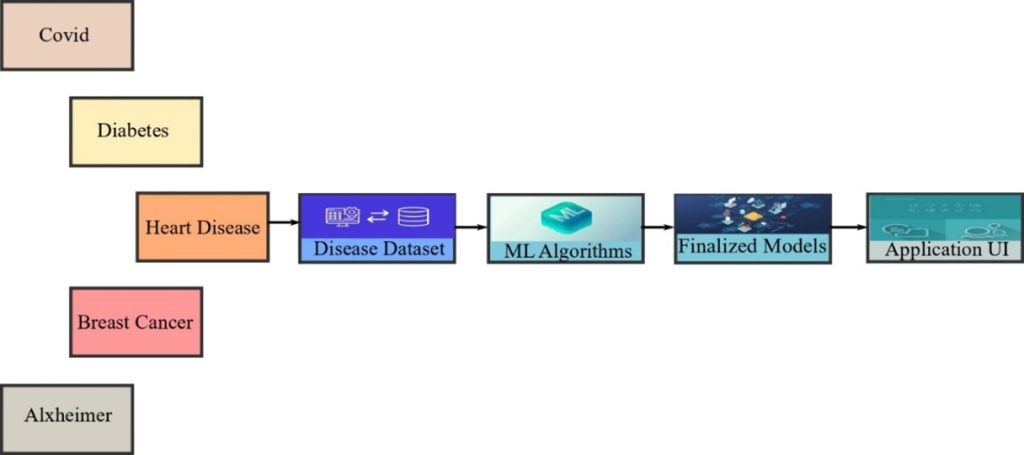
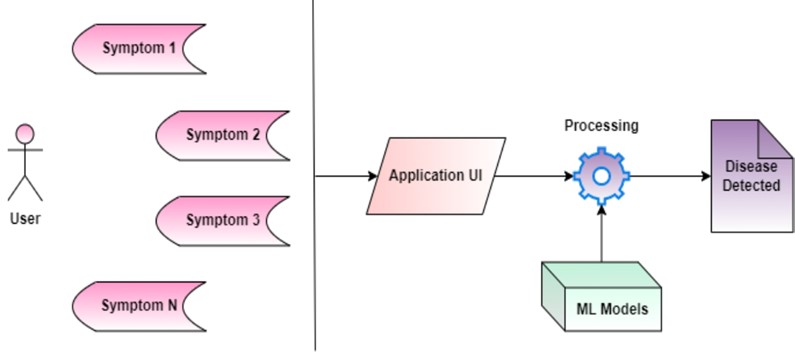
- SRM AP Researchers Publish Groundbreaking Paper on DC Microgrid Integration April 29, 2024
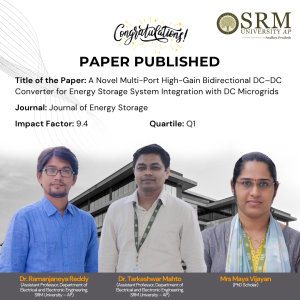 In a significant stride towards sustainable energy solutions, a team of researchers from the Department of Electrical and Electronic Engineering has unveiled a groundbreaking innovation. Their paper titled “A Novel Multi-Port High-Gain Bidirectional DC–DC Converter for Energy Storage System Integration with DC Microgrids” has been accepted in the prestigious Q1 Journal of Energy Storage, boasting an impressive impact factor of 9.4. The study focuses on addressing the critical challenges associated with energy storage systems (ESS) in direct current (DC) microgrids. Dr Ramanjaneya Reddy, Assistant Professor, Dr Tarkeshwar Mahto, Assistant Professor, and Mrs Maya Vijayan, a dedicated PhD Scholar, collaborated to design a multi-port high-gain bidirectional DC-DC converter. This innovative converter facilitates seamless integration of energy storage systems with DC microgrids, enhancing overall system efficiency and reliability.
In a significant stride towards sustainable energy solutions, a team of researchers from the Department of Electrical and Electronic Engineering has unveiled a groundbreaking innovation. Their paper titled “A Novel Multi-Port High-Gain Bidirectional DC–DC Converter for Energy Storage System Integration with DC Microgrids” has been accepted in the prestigious Q1 Journal of Energy Storage, boasting an impressive impact factor of 9.4. The study focuses on addressing the critical challenges associated with energy storage systems (ESS) in direct current (DC) microgrids. Dr Ramanjaneya Reddy, Assistant Professor, Dr Tarkeshwar Mahto, Assistant Professor, and Mrs Maya Vijayan, a dedicated PhD Scholar, collaborated to design a multi-port high-gain bidirectional DC-DC converter. This innovative converter facilitates seamless integration of energy storage systems with DC microgrids, enhancing overall system efficiency and reliability.Abstract
Bidirectional converters have often been used in numerous applications like DC microgrids, renewable energy, hybrid energy storage systems, electric vehicles, etc. The paper proposes a novel multi-port high-gain (NMPHG) bidirectional DC-DC converter that supports DC microgrid (DC-MG) applications. The main contributions of the proposed converter are high step-up/step-down conversion gain, multiple input ports, lower switch voltage stress, and lower component count owing to the single converter with multiple input ports for DC microgrid applications.
The detailed operational principle, analysis, and design considerations of proposed NMPHG bidirectional DC-DC converters are discussed. Furthermore, the loss analysis, detailed comparison with similar works, and efficiency analysis with non-modalities during forward power flow (LV to HV) and reverse power flow (HV to LV) modes are presented. The efficiency of the proposed converter is found to be 93.8% in forward power flow and 92.9% in reverse power flow modes at rated power. Finally, a hardware prototype of the proposed NMPHG bidirectional DC-DC converter is implemented with 100 W in FPF mode and 200 W in RPF mode with a TMS320F28335 processor and validated with theoretical counterparts.
Explanation of Research in Layperson’s Terms
The proposed converter is a 200W bidirectional topology used in DC microgrid applications such as renewable energy, hybrid energy storage systems, and electric vehicles. The converter can accept two or more sources to supply the load. Thus, it is suitable for various applications of traction vehicles. It exhibits a lower switch stress and reduces the component ratings to lower values.
Title of Research Paper in the Citation Format
A NOVEL MULTI-PORT HIGH-GAIN BIDIRECTIONAL DC-DC CONVERTER FOR ENERGY STORAGE SYSTEM INTEGRATION WITH DC MICROGRIDS
Vijayan, Maya, Ramanjaneya Reddy Udumula, Tarkeshwar Mahto, and Ravi Eswar KM. “A novel multi-port high-gain bidirectional DC-DC converter for energy storage system integration with DC microgrids.” Journal of Energy Storage 87 (2024): 111431.
Practical Implementation or the Social Implications Associated with it
The features include port expandability on the source side, lower switch voltage stress, bidirectional property, and fewer components. It is most suitable for electric vehicles, Unmanned ariel vehicles, and energy storage systems at renewable power plants, etc. It improves the reliability of the grid system whereas hybrid energy storage systems with battery or supercapacitor will improve system stability.
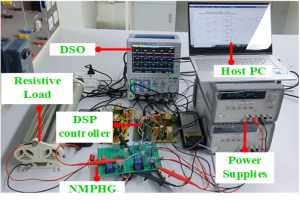
It can be used in various on-grid and off-grid applications like hospitals, offices, and educational institutions, especially where energy backup is very important. These types of converters are more specific for use in fast power transition required such as EVs, drones, aircraft, space vehicles, etc. The major advantage is the reduction in the size of the converter due to multiple source capability and ease of control.
Future Research Plans
We plan to work on a bidirectional converter with better efficiency and ultra-high gain. That should be able to reduce the size of the converter and the source ratings too. Design and implement bidirectional multi-port converters for various applications of DC microgrids, such as renewable and hybrid storage integration.
Continue reading → - 8th Research Day: A Pathway to Research and Innovation April 29, 2024
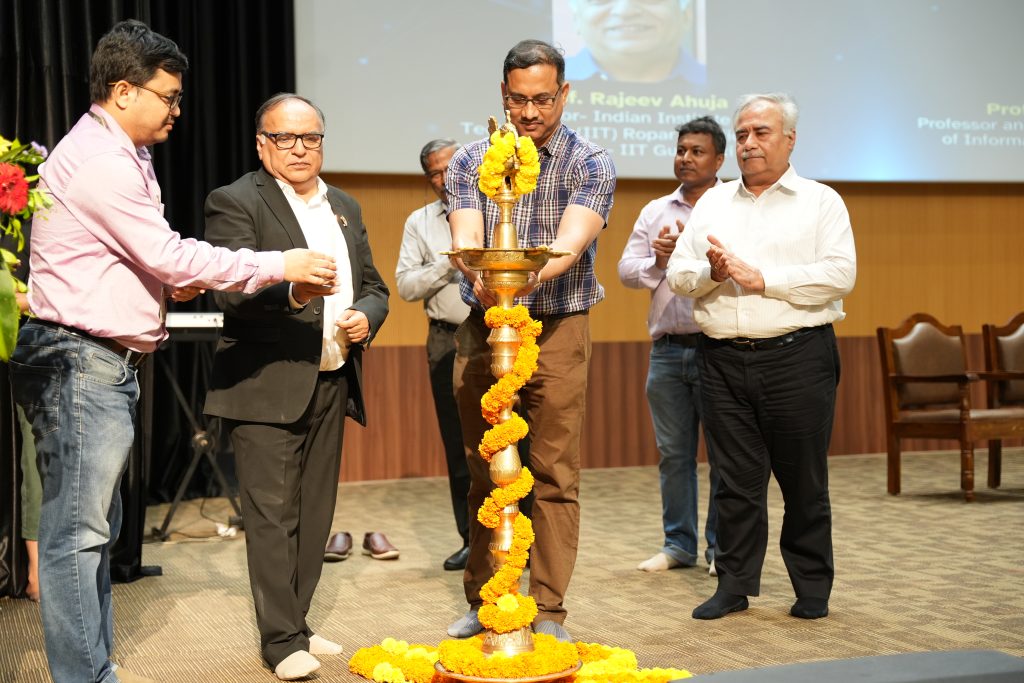
“Research is a passion. We must lay a strong foundation of basic research to further develop, grow and produce a high-quality research output. Focus on translational research as it is the way forward for an innovative world,” said Prof. Rajeev Ahuja, Chief Guest of the 8th Research Day, while addressing the research community of SRM University-AP.
The university hosted the 8th Research Day on April 26, 2024, in the august presence of Chief Guest Prof. Rajeev Ahuja, Director-IIT Ropar and Officiating Director-IIT Guwahati, Guest of Honour Prof. Amlan Chakrabarti, Director–A. K. Choudhury School of Information Technology, University of Calcutta; Vice Chancellor Prof. Manoj K Arora, Registrar Dr R Premkumar, Dean-Research Prof. Ranjit Thapa, Deans of all schools, faculty, research scholars and students. “Research Day at SRM AP is the celebration of our students’ innovative thought and applauding them in their developing research acumen”, remarked Prof. Arora in his welcome address. He encouraged students to take their research to the next level and become entrepreneurs who will transform the Indian market and economy.
Prof. Amlan Chakrabarti, the designated guest of honour for the day, tremendously appreciated the efforts put forth by the SRM AP in propelling a research-centric education. He remarked that research is the pursuit of thought and the product of innovation. Prof. Chakrabarti also delivered distinguished lectures on the intriguing realm of quantum machine learning and exploring generative AI, shedding light on the latest advancements and potential applications in both fields.
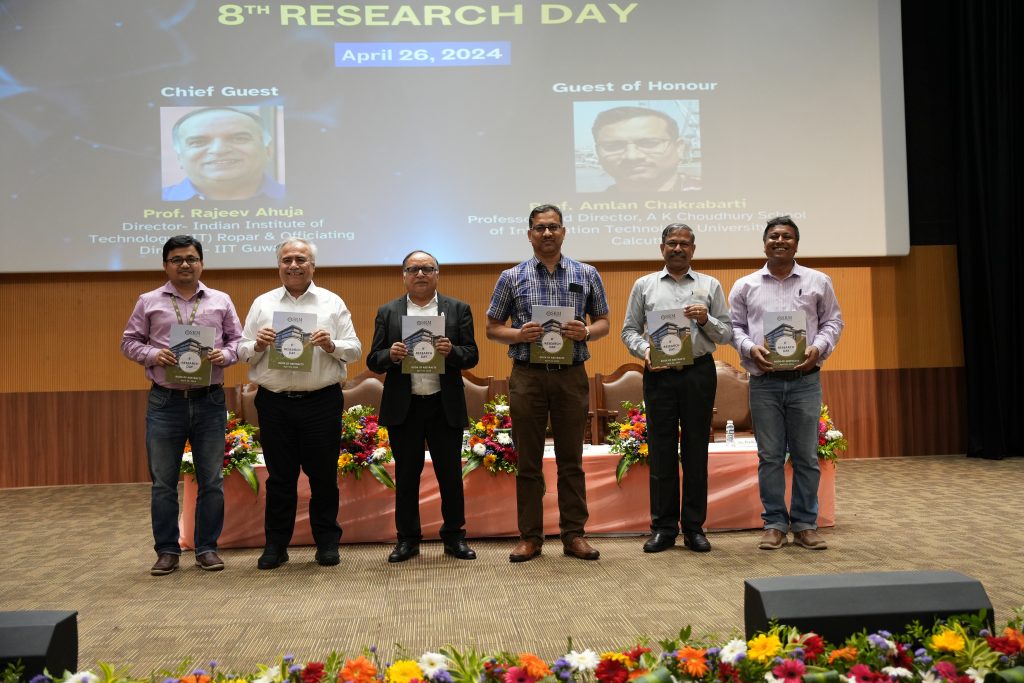
The 8th Research Day was commemorated to celebrate research and innovation in the emerging fields of science, technology, humanities, social sciences, management and commerce. 350+ research abstracts were submitted by undergraduate/postgraduate students and research scholars from across the country, which were culminated and unveiled as an Abstract Book. Selected papers were presented, and medals were awarded to the winners. The paper presentation witnessed 27 participants bagging gold medals and 7 participants securing silver medals. Five esteemed faculty of the university, Dr K M Divya Chaturvedi, Dr Mahesh Kumar Ravva, Prof. G S Vinod Kumar, Dr Ghanshyam Pandey and Dr Ramanjeya Reddy Udumula, were awarded prestigious awards for their stellar contributions and ingenious inventions in their respective domains.
The dignified guests of the events were presented with mementos as a token of gratitude by the university leaders, Dean-Research Prof. Ranjit Thapa and Convenor of the 8th Research Day, Dr Pradyut Kumar Sanki, Associate Professor, Department of Electronics and Communication Engineering. Dr R Premkumar delivered the Vote of Thanks, concluding the spectacular event.
Ranked Third among all private universities in India for two consecutive years according to Nature Index Ranking, SRM University-AP has a total of 2040+ research publications, 200 published patents, 24 granted patents, 43 Nature Index publications and a total outlay of Rs. 37+ crores in projects. The research environment is anchored by Eight Interdisciplinary Research Centres of Excellence. Research Day is a testament to the varsity’s commitment to building a strong research culture and research capacity among the faculty and students across different domains.
Continue reading → - Unveiling Findings on Thermo-Mechanical Behaviour of FGM Sandwich Plates April 26, 2024
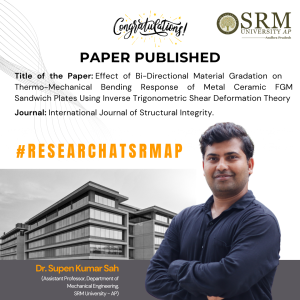 In a significant advancement in the field of material engineering, Dr Supen Kumar Sah, an esteemed Assistant Professor from the Department of Mechanical Engineering, has published a groundbreaking research paper.
In a significant advancement in the field of material engineering, Dr Supen Kumar Sah, an esteemed Assistant Professor from the Department of Mechanical Engineering, has published a groundbreaking research paper.The study, titled “Effect of Bi-Directional Material Gradation on Thermo-Mechanical Bending Response of Metal Ceramic FGM Sandwich Plates Using Inverse Trigonometric Shear Deformation Theory,” appears in the prestigious International Journal of Structural Integrity.
Dr Sah’s research provides new insights into the behaviour of Functionally Graded Materials (FGMs) under thermal and mechanical loads, which is crucial for the design of advanced engineering structures. His work employs an innovative inverse trigonometric shear deformation theory to analyse the bending response of metal-ceramic FGM sandwich plates, offering a more accurate prediction of their performance in real-world applications.
This publication not only highlights the cutting-edge research being conducted at SRM University but also positions Dr Sah as a leading figure in the application of FGMs in structural engineering. The findings from this paper have the potential to influence the design and optimization of materials used in various industries, from aerospace to automotive.
Abstract
The purpose of this study is to investigate the bending analysis of metal (Ti-6Al-4V) ceramic (ZrO_2) functionally graded material (FGM) sandwich plate having material property gradation along length and thickness direction under thermo-mechanical loading using inverse trigonometric shear deformation theory (ITSDT). Mechanical and thermal properties of BDFGM sandwich plates are considered temperature-dependent in the present study. Analytical solution for bending analysis of FGM plate has been carried out using Hamilton’s principle and Navier’s solution.
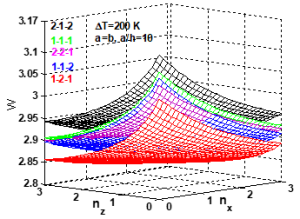

The present study shows that centre deflection, normal stress, and shear stress are significantly influenced by temperature-dependent material properties, bi-directional gradation exponents’ geometrical parameters, sandwich plate layer thickness, etc.
Title of the Research Paper in the Citation Format
Sah, S. K., Ghosh, A. (2024). Effect of Bi-Directional Material Gradation on Thermo-Mechanical Bending Response of Metal Ceramic FGM Sandwich Plates Using Inverse Trigonometric Shear Deformation Theory. International Journal Structural Integrity. DOI: 10.1108/IJSI-02-2024-0016
Collaborations
Prof Anup Ghosh, Indian Institute of Technology Kharagpur, India
Future Research Plans
Modelling and Analysis of porous uni and multi-directional Functionally Graded Material (FGM) plates to obtain the impact of porosity distributions over structural responses.
Analytical & Finite Element Solution for static and dynamic response of FGM sandwich plates employing non-polynomial shear deformation theories under elastic foundation.
Continue reading → - A Study on Self-Learning Controller Design for DC-DC Power Converters April 26, 2024
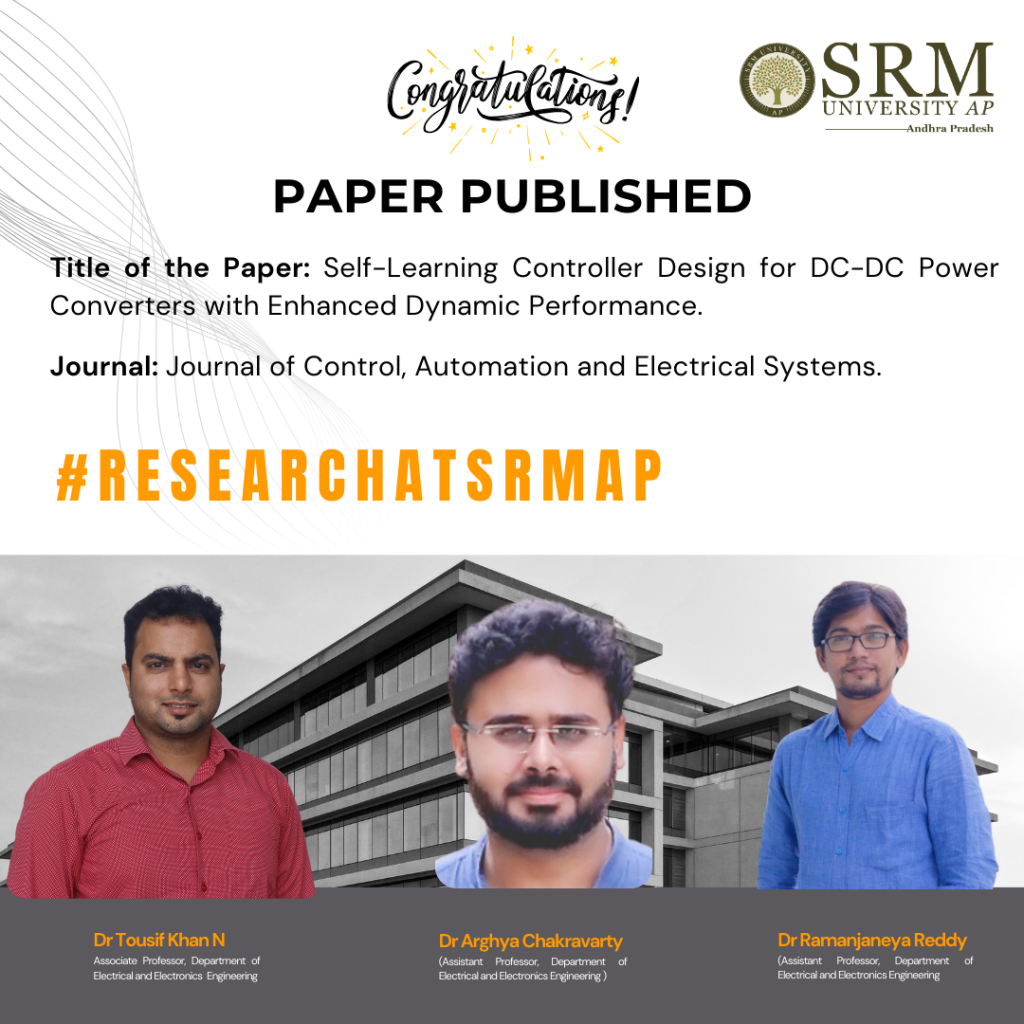
It is with great pleasure that we announce the publication of a research paper titled “Self-Learning Controller Design for DC-DC Power Converters with Enhanced Dynamic Performance,” jointly authored by Dr Tousif Khan N, Associate Professor, Department of Electrical and Electronics Engineering, and Dr Ramanjaneya Reddy & Dr Arghya Chakravarty, Assistant Professors, Department of Electrical and Electronics Engineering. The research paper introduces a novel self-learning control for precise output voltage tracking in DC-DC buck power converters.
Abstract:
This article introduces a self-learning robust control approach for accurate output voltage tracking in DC-DC buck power converters, focusing on scenarios with high precision requirements and significant load uncertainties. The method employs a simple online neural network to swiftly estimate unexpected load changes and disturbances across a wide range. Operating within a backstepping framework, the controller utilises neural network-learned uncertainties to enhance stability and improve dynamic and steady-state performance of both output voltage and inductor current. Extensive numerical simulations and practical experiments on a laboratory prototype demonstrate substantial enhancements in dynamic performance with a 94% reduction in settling time and precise steady-state tracking. The reliability of the proposed controller is further supported by the consistency between computational and experimental outcomes, showcasing its potential for real-world applications.
Practical implementations:
The proposed controller can be implemented/used for robotics applications, industrial processes, and medical equipment where precise control is needed.
Future research plans:
The following are the potential future directions of the proposed work;
(i) Design and development of the proposed self-learning neural network-based control for DC-DC buck converter systems with real-time DC sources, such as solar PV and fuel cells, experiencing highly intermittent input voltage changes.
(ii) Incorporating inductor current constraints and output voltage limitations into the proposed controller would also be an avenue worth exploring.
We congratulate the professors for their valuable contribution and look forward to future breakthroughs in this area.
Continue reading →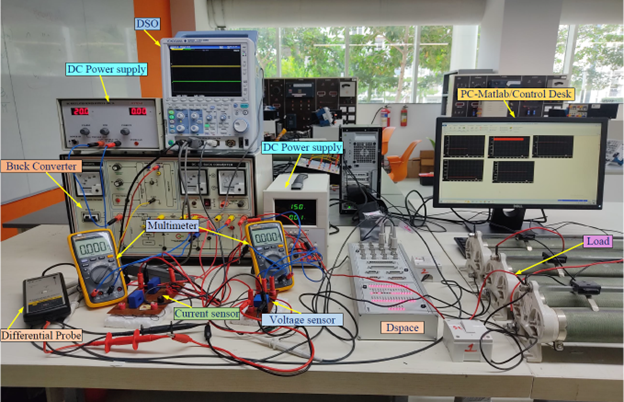
- Debate – The Return of the Dalit in the New Cinema of South India April 26, 2024
- Advancing Knowledge: Publication of Groundbreaking Research Paper April 26, 2024
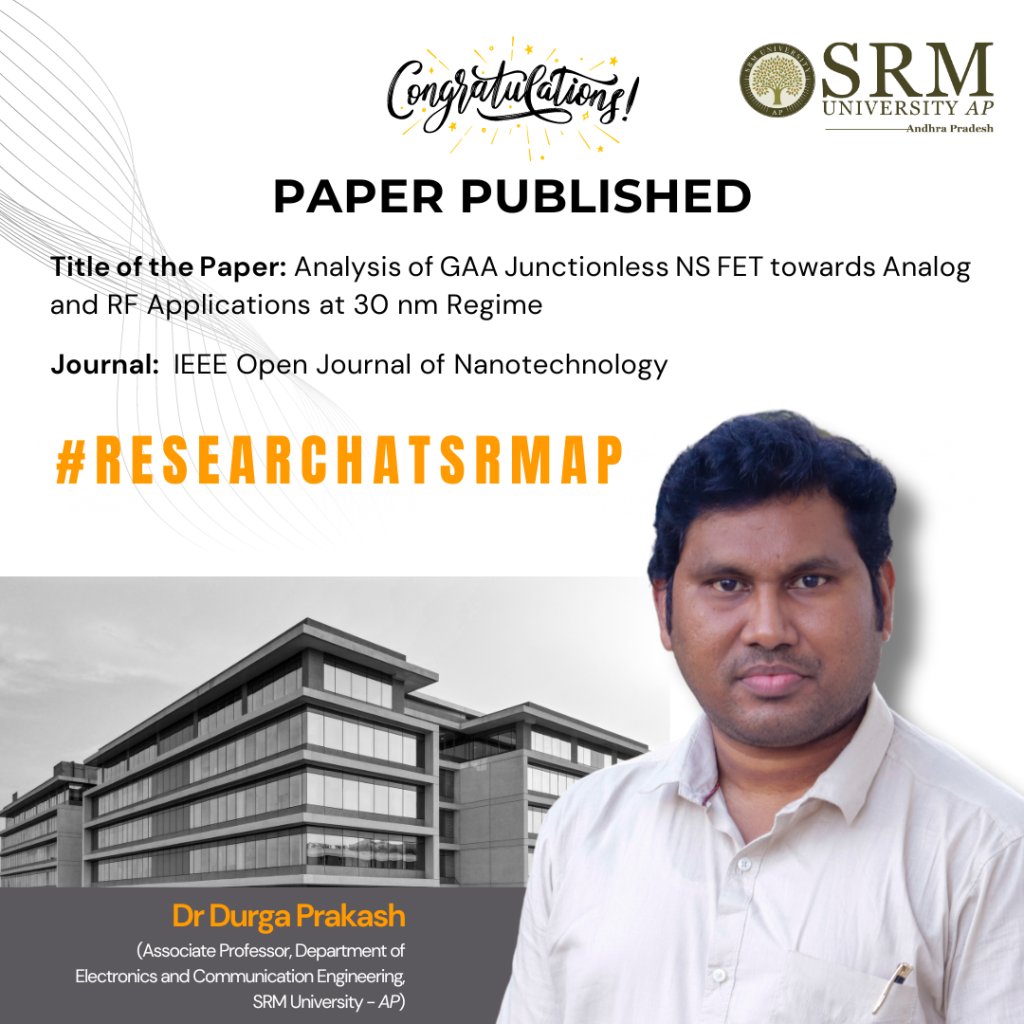
It is a matter of immense pleasure for the Department of Electronics and Communication Engineering to announce the publication of Dr Duga Prakash, Associate Professor at SRM University-AP. His research paper titled “Analysis of GAA Junctionless NS FET towards Analog and RF Applications at 30 nm Regime”, published in IEEE Open Journal of Nanotechnology, studies how the device can be manufactured with ease and minimal doping, eliminating the need for high-temperature doping processes. The enhanced performance metrics suggest that the device’s potential for faster analog/RF switching circuits paves the way for more efficient analog and RF applications at the 30 nm scale.
Abstract:
A new nanosheet FET is used to generate a quantum model in this research. A Gate-all-around (GAA) Junction-less (JL) nanosheet device with a 1 nm gate dielectric of SiO2 and HfO2 performs according to the standard model. The visual TCAD tool examines ION, IOFF, ION/ IOFF, threshold voltage, DIBL, gain parameters (gm, gd, Av), gate capacitance, and cut-off frequency to evaluate the classical and quantum models of the GAA nanosheet device. Simulation results show that the device’s low gate capacitance of 10–18 makes it suitable for rapid switching applications. Device research reveals a transconductance (gm) value of 21 μS and a remarkable cut-off frequency of 9.03 GHz. Its P-type device response has also been extensively studied. Finally, the inverter model uses the proposed GAA nanosheet device. Despite having larger gate capacitance, the NSFET-based inverter offers the smallest propagation delay helps apply knowledge to real-world situations.
Continue reading →
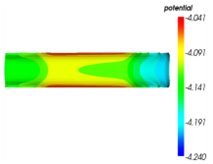
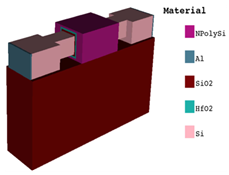
- Alumni Talk: Transitioning Career Pathways April 25, 2024
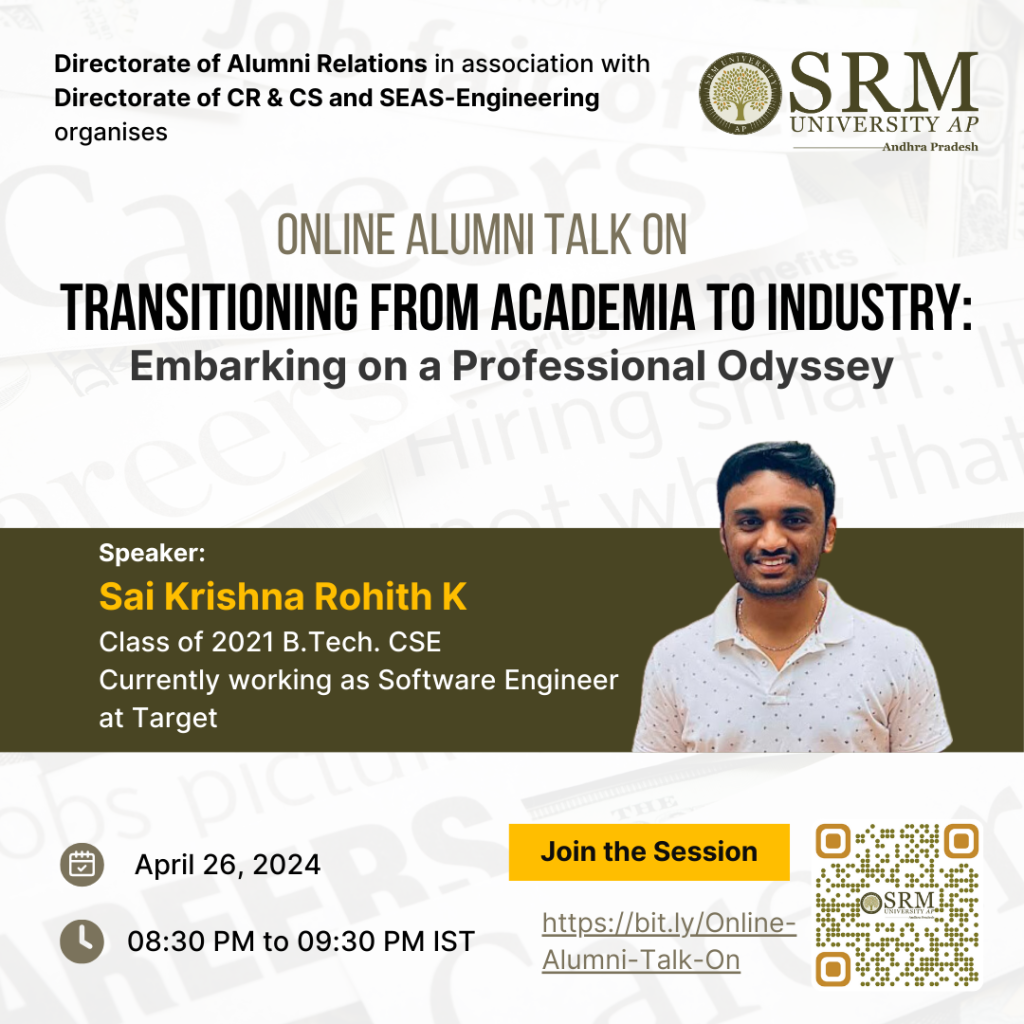
The Directorate of Alumni Relations, in collaboration with the Directorate of Corporate Relations and Career Services (CR&CS) and SEAS Engineering at SRM University-AP, is organising a one-of-a-kind alumni talk titled, “Transitioning from Academia to Industry: Embarking on a Professional Odyssey.” The interactive session by Mr Sai Krishna Rohith K, Software Engineer at Target and a former student, Class of 2021 B.Tech Computer Science and Engineering will be conducted online on April 26, 2024.
The upcoming session aims to provide insights into the various challenges that students may encounter while transitioning from their academic life to a professional career. The discussion will delve into the nuances of this significant change, including the skills that will be required to succeed in a professional setting, the expectations that employers may have of new hires, and the adjustments that students may need to make to their daily routines. By addressing these aspects, the session hopes to prepare students for a smooth and successful transition into their desired career paths.
Stay tuned to learn about the exciting nuances of professional life!!
Continue reading → - Exploring Contemporary Narratives in New Media April 25, 2024
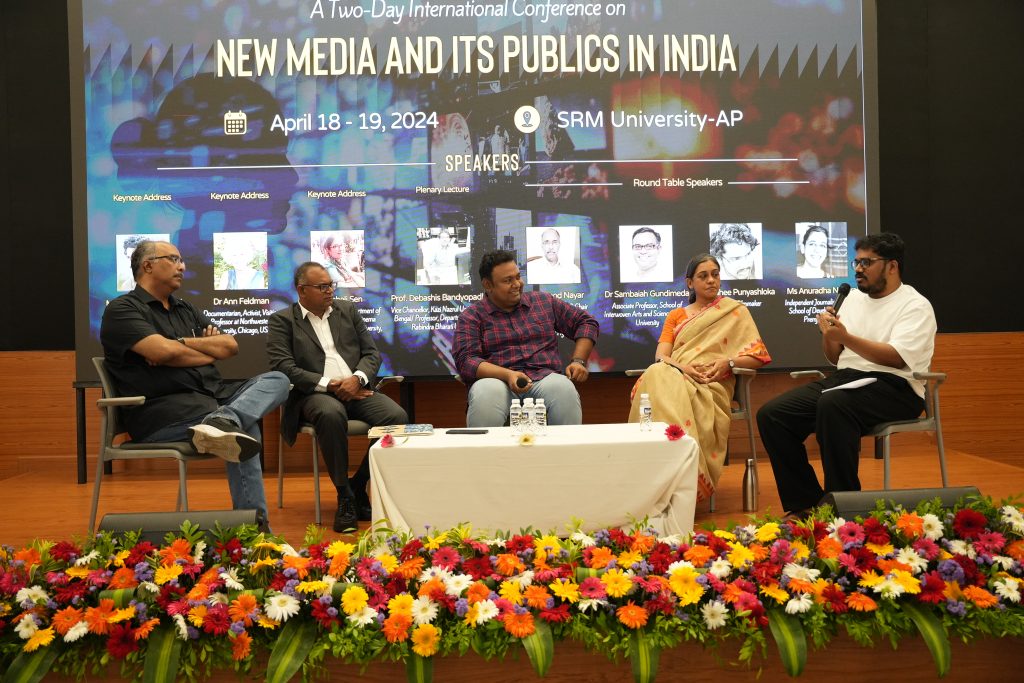
Department of Liberal Arts and the Department of Media Studies, under the aegis of the Easwari School of Liberal Arts at SRM University-AP organised its 2-day International Conference on New Media and its Publics in India. This prestigious conference welcomed renowned figures, including Mr Abhinandan Sekhri, co-founder and CEO of Newslaundry; Dr Ann Feldman, Documentarian and Activist; Dr Meheli Sen, Associate Professor, Department of AMESALL, Director of Cinema Studies Program, Rutgers University; Dr Pramod K Nayar, Professor and UNESCO Chair in Vulnerability Studies, Department of English, University of Hyderabad; Dr Sambaiah Gundimeda, Associate Professor, School of Interwoven Arts and Sciences, KREA University; Mr Rahee Punyashloka, Artist and Filmmaker and Ms Anuradha Nagaraj, Independent Journalist, Faculty at School of Development, Azim Premji University.
In his inaugural address, Vice Chancellor Prof. Manoj K Arora remarked, “We are honoured to host a conference of this magnitude. Media has become an indispensable facet of our contemporary existence; invariably, we all engage with or subscribe to media in some capacity.” Keynote speaker and co-founder of Newslaundry, Mr Abhinandan Sekhri, imparted his wisdom to the attendees, emphasising, “As the fourth pillar, media plays a pivotal role in society. It is imperative that we discern and uphold the principles of authentic journalism.” Prof. Vishnupad, Dean-Easwari School of Liberal Arts, remarked,” Technology and media have become an essential aspect of our lives today, and they have drastically altered our perception of things.”
Dr Meheli Sen, Dr Ann Feldman, Dr Pramod Nayar, Dr Sambaiah Gundimeda, Mr Rahee Punyashloka, and Ms Anuradha Nagarajan all deliberated on the various possibilities and interpretations that the New media offers and thereby shapes the public narratives. The conference also comprised a series of parallel sessions that explored the multifaceted relationship between New Media and various disciplines. Topics discussed included New Media and Literature, Gender, History, Democracy and Performance. Members of the academia presented their research papers, fostering insightful discussions on the evolving landscape of New Media.
The two-day event witnessed 150+ entries from students, scholars and faculties from across the country and the world and provided a platform for intellectual exchange but also fostered a collaborative spirit among participants. The conference concluded with a plenary address by Dr Pramod Nayar, which served as a catalyst for innovative thinking in New Media. Registrar Dr R Premkumar, in his message, applauded the efforts of the convenors, Dr Asijit Dutta and co-convenors Dr Sapna Mishra and Dr Partha Bhattacharjee for organising a scholarly colloquium such as this and remarked, “the exchange of ideas, scholarly debates, and interdisciplinary discussions that transpired here will undoubtedly enrich the academic landscape and advancement in the field of new media”.
Continue reading →